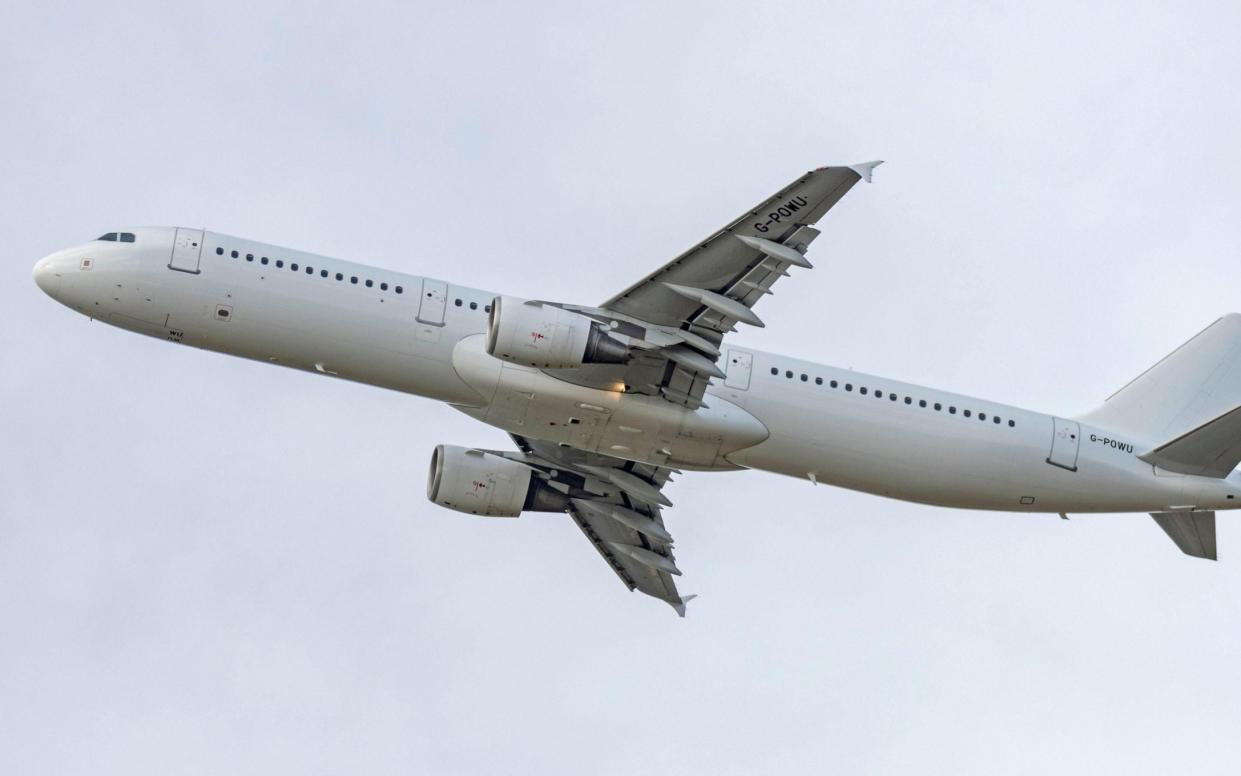Plane engine burst into flames after engineer incorrectly refuelled aircraft

A plane was forced to make an emergency landing when its engine burst into flames after an engineer incorrectly refuelled the aircraft, a report found.
The maintenance worker who didn't speak English as his first language had added nearly 38 times too much anti bacterial chemical into the Airbus A321-211 fuel on 23 February 2020, investigators found.
Three days later, the airliner was forced to make an emergency landing after one engine caught fire and the other stalled resulting in it almost crashing near Gatwick airport.
The disaster may only have been averted because the 236-seat plane was flying light with no passengers and just seven crew in quiet airspace and in clear conditions.
The report by the Air Accidents Investigation Branch (AAIB) said that while the aircraft was being serviced at an overseas maintenance depot in Cyprus an engineer, who only spoke English as a second language, did not understand that 'ppm' meant 'parts per million’.
The engineer, 52, who had never used biocide treatment before attempted to search the internet for the ‘ppm’ definition and then used an online calculator to try to figure out the correct amount, but was unable to recall which website he had used.
He ended up pouring 30kgs of the anti bacterial chemical Kathon into each wing tank when he should have used 0.8kgs on each.
The report found that he had also made an error by pouring the biocide directly into the tanks, so that it pooled in the bottom, rather than mixing it up with fuel and then putting it in.
The plane then took off from Larnaca Airport, Cyprus to London Stansted Airport and problems with the two engines were noted over the course of its next few flights.
Watch: Top tips for helping the environment on a tight budget
But it wasn’t until its fourth flight when the plane took off from Gatwick airport to Stansted, that the pilot noticed that his number one engine was "banging and surging" at a height of 500ft.
He told investigators how the Titan Airways jet was "yawing...and fishtailing...all over the place" as his cabin crew told him by intercom that flames were billowing out of the engine's tailpipe in the darkness.
The 28-year-old pilot sent out a Mayday alert just 47 seconds after taking off and took manual control of the plane, making an emergency landing back at Gatwick at 12.20am on the 26th February, just 11 minutes after taking off.
The report concluded that the excess quantity of Kathon treatment contaminated the fuel and caused the partial failure of the jet's engines due to the build up of residues.
Investigators made safety recommendations, calling for the European Union Aviation Safety Agency to classify the use of biocide additives as a "critical maintenance task" and subject to tighter rules and procedures.
The report said that Airbus was also in the process of replacing the term "parts per million'" or "ppm" in its maintenance literature to the more easily understood "ml/1,000ltrs".
Crispin Orr, Chief Inspector of Air Accidents said: "This was a very serious incident that in different circumstances could have had a catastrophic outcome.
He added that it was “essential that maintenance regimes are resilient to errors that could lead to fuel system contamination.”
Titan Airways have been contacted for comment.

 Yahoo News
Yahoo News 
